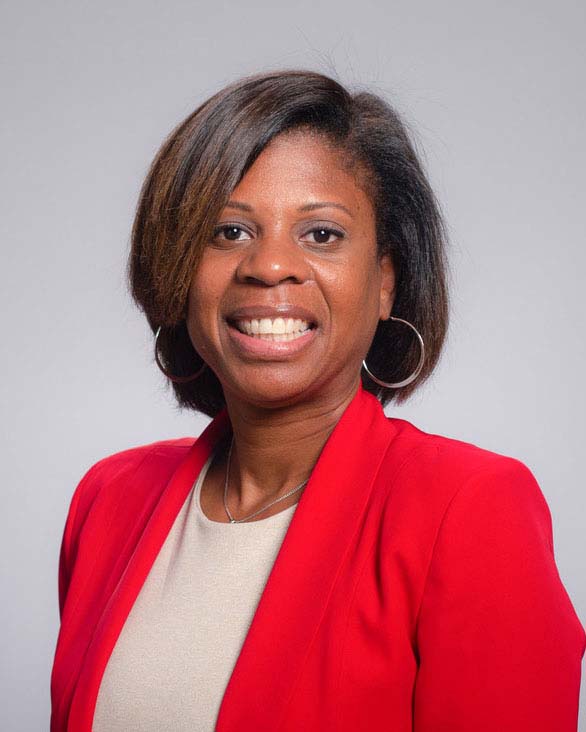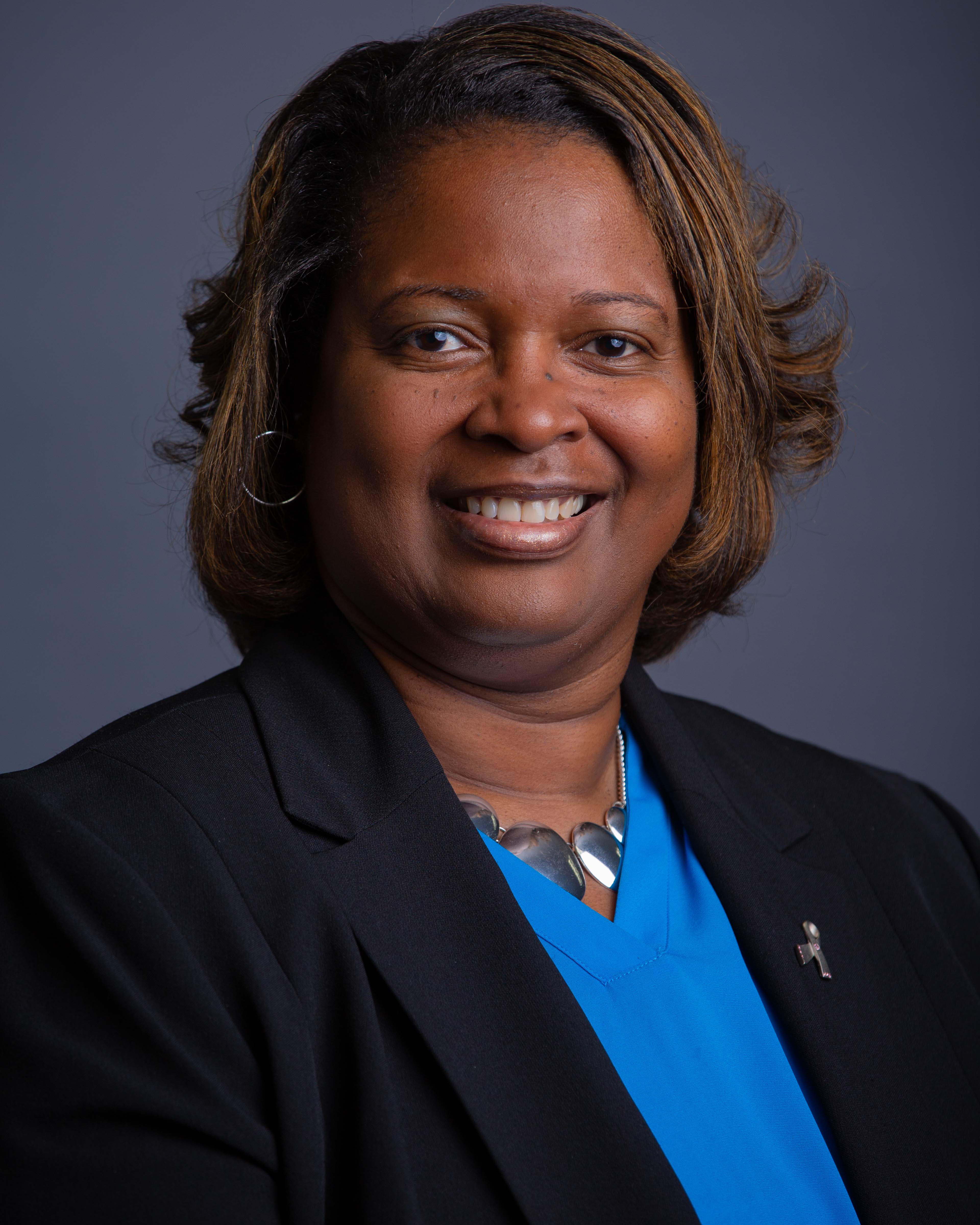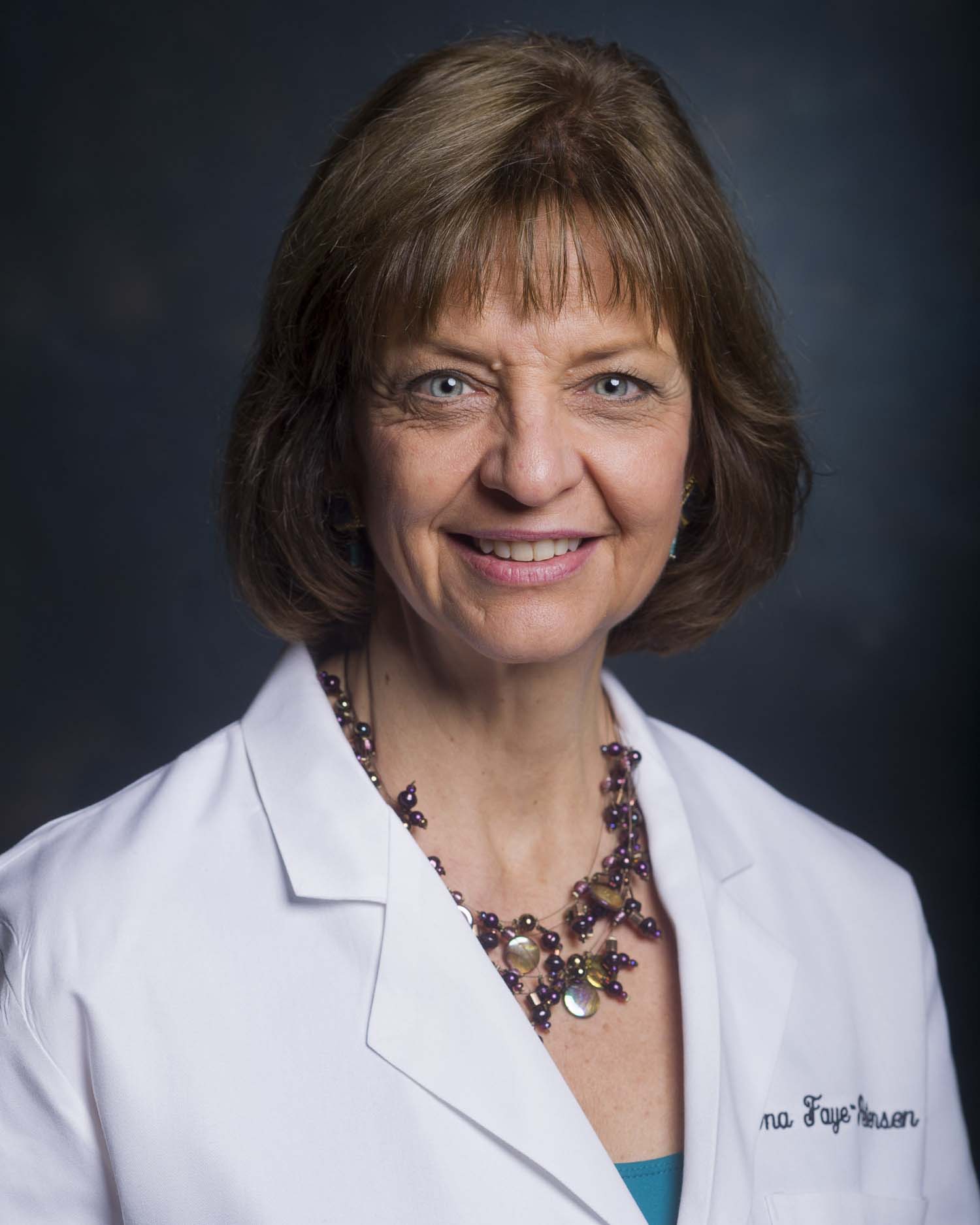 LaKisha Mack, MBAContributing author:
LaKisha Mack, MBAContributing author:
Christina Crowe, Pathology
For decades, women across the School of Medicine have worked tirelessly to lead initiatives, fight for justice, and spearhead progressive ingenuity.
While women have always contributed to the success of the school, the COVID-19 pandemic has exposed the many ways women step up and speak out, especially since the pandemic has impacted women more than other group.
Since our series began earlier this month, key themes from our interviews conducted with featured women include notions of trusting oneself, standing tall, staying true to oneself, and never compromising identity.
For our final installment of “Women Making History” for Women’s History Month, we feature a few inspirational women in the areas of administration, diversity and inclusion, and community-engaged outreach.
LaKisha Mack, MBA, senior associate dean of Administration and Finance, began her career at UAB in 2002, and has worked in various roles across the school, including at the O’Neal Comprehensive Cancer Center, in the Department of Medicine, and in the Division of Gastroenterology and Hepatology, as well as roles in the School of Health Professions.
A native of Long Beach, California and a graduate of Momentum, Mack is the first female Black/African American senior associate dean in the School of Medicine.
When asked what it means to be the first female Black/African American senior associate dean, Mack says, “It’s truly an honor to be recognized for my talent. I trusted my intuition and tried hard not to ever compromise who I am personally, to become who I wished to be professionally. I chose not to ever be apologetic for who I am throughout my career, and it paid off.”
Q: Who is one woman that inspired you and your career?
My mother is my biggest inspiration. While growing up, she consistently instilled in me not to let anyone rob me of my imagination, creativity or aspirations. She worked hard raising four kids all while being a wife and maintaining a career. She demonstrated to me that I can create my own journey and write my own script, while never being limited by other people’s limited imaginations.
Q: What is the biggest barrier you’ve faced as a woman in your profession?
The biggest barrier I’ve faced as a woman as I moved up in my career was the idea of ‘looking the part.’ There is nothing I can do, or wanted to do, about being the only black woman in the room with my white male colleagues. So, I decided to be comfortable in my skin all while breaking the glass ceiling and barriers so somebody else that looks like me can stand on my shoulders.
Q: What advice would you give to the next generation of women in your profession?
One of my favorite quotes is from Shirley Chisholm, former congresswoman: “If they don’t give you a seat at the table, bring a folding chair.” There is no doubt that a black woman sitting in a boardroom, standing on the Senate floor, or steering a corporation is a vital part of this country’s evolution. My advice to the next generation of women would be: don’t be quiet if you have an opinion or something to contribute. The only way they’ll know that you’re in the room is if you tell them.
 Claudia Hardy, MPAClaudia Hardy, MPA, program director in the Office of Community Outreach and Engagement (OCOE) at the O’Neal Comprehensive Cancer Center, has devoted over 25 years of her life to cancer disparities work.
Claudia Hardy, MPAClaudia Hardy, MPA, program director in the Office of Community Outreach and Engagement (OCOE) at the O’Neal Comprehensive Cancer Center, has devoted over 25 years of her life to cancer disparities work.
She is a strategic planner, program developer, and liaison to multiple program areas across OCOE. On providing administrative leadership, she says, “My greatest role is developing and training around Community Health Advisors programs, the foundation for much of our COE activities.”
Q: Who is one woman that inspired you and your career?
Personally, my late mother (Frances Smiley Hardy) inspired me with her strong work ethics and the ability to serve mankind—no matter their education, job, or community status, which is very fitting for the work that I do in engaging communities and partners at all levels. Professionally, my mother’s best friend, who most recently passed in 2020, Eunice Bennett Towns, also inspired me. Mrs. Town was a high school teacher, the first professional woman that I encountered growing up in rural Dallas County.
Q: What is the biggest barrier you’ve faced as a woman in your profession?
The biggest barrier has been the glass ceiling. My role is so unique that often times others try to place me in a category or salary range that is not appropriate. I’m actually an executive staff member, often operating in an investigator or faculty role.
Q: What advice would you give to the next generation of women in your profession?
Seek out mentors and “stay current and relevant” in your chosen profession. It’s important that women are cognizant of trends and changes in their career field. Last, never stop learning, formally and informally.
 Ona Faye-Peterson, M.D.Ona Faye-Petersen, M.D., professor emeritus in the Department of Pathology, has always advocated for women in her nearly 30 years at UAB, serving as a senior scientist and pathologist for the Center for Women’s Reproductive Health; a leader in the UAB Commission on the Status of Women; and dean-appointed UAB representative to the American Academy of Medical Colleges Group on Women in Medicine and Science.
Ona Faye-Peterson, M.D.Ona Faye-Petersen, M.D., professor emeritus in the Department of Pathology, has always advocated for women in her nearly 30 years at UAB, serving as a senior scientist and pathologist for the Center for Women’s Reproductive Health; a leader in the UAB Commission on the Status of Women; and dean-appointed UAB representative to the American Academy of Medical Colleges Group on Women in Medicine and Science.
Faye-Petersen received the Outstanding Woman UAB Faculty Member award in 2007, and established two funds in support of education, including a multidisciplinary teaching award for UAB residents and fellows, and an endowed fund to support trainees’ attendance at workshops and symposia at national and international meetings.
On her role as a community mentor, she says, “I try to remain an open-minded, be a respectful advisor, and help each student sort out his or her interests, while weighing opportunities. I have endeavored to challenge trainees. For me, being a mentor is one of the most important roles an individual can assume because the effects of one's influence are so long lasting. It also means participating in an experience that will help mentees later become good mentors themselves.”
Q: Who is one woman that inspired you and your career?
Dagmar K. Kalousek, M.D., was a legendary, world famous geneticist and pediatric pathologist at Children's Hospital in Vancouver, British Columbia, with whom I pursued two mini-sabbaticals in embryo and fetal pathology. She was brilliant, brave, inspiring, and compassionate. The most memorable thing about her was when she advised, "If you really want to do something, it doesn’t matter when you do it, it only matters that you do it." I continue to derive courage and hope from that statement.
Q: What is the biggest barrier you’ve faced as a woman in your profession?
Being believed, when I began my career. As a new faculty member, I had a vision to start a regional diagnostic reference laboratory. It took more than two years to bring to fruition, as a joint service between UAB Hospital and the Department of Pathology. The day it opened, several male colleagues came by to extend their congratulations. Some relayed that they hadn't believed it could be done. They had never seen a woman spearhead something as large as this and they had seriously doubted it would happen. I truly believe the climate for women physicians and other professionals is much better now, but gender and other inequities, such as with salary and opportunity, do remain. We remain tasked to seek education and interactions that help us identify our prejudices or insensitivities and address our blind spots.
Q: What advice would you give to the next generation of women in your profession?
Keep a sense of humor and your eye on your goals, and never compromise your integrity. Stand tall, breathe, and trust yourself, and you will find the path in which you will flourish and help others to, as well.
Celebrate and support women all year
As we close out our Women’s History Month series, the School of Medicine remains committed to supporting and celebrating women all year long. While we continue to endure the COVID-19 pandemic, it’s important to celebrate monthly recognitions safely. We’ve put together a list of five ways to commemorate Women’s History Month any time of year, while following CDC guidelines.
1. Virtually visit the Library of Congress’s “Shall Not Be Denied: Women Fight for the Vote” exhibit. This unique collection illustrates a “collective story of courage, perseverance, savvy, creativity, and hope that continues to inspire women today.”
2. Listen to women’s stories. There is much power in listening to the words of women. Check out this list of eight books to read to celebrate Women’s History Month.
3. Learn about the unsung heroes of women’s history, like Mary Church Terrell and Joan Trumpauer, or check out this list that tells the stories of Dorothea Dix and Claudia Jones, just to name a few.
4. Teach kids about Women’s History Month and the accomplishments of women throughout time. Check out this list of activities to do with kids or books to read.
5. Buy a coffee or a meal for a woman that inspires you. While it’s important to know about those who made history, it’s also important to highlight and uplift the women around us. Supporting the women in our lives builds momentum and encouragement.
To read more interviews with women at the School of Medicine, read Part 1, Part 2, and Part 3 of our “Women Making History” series.
